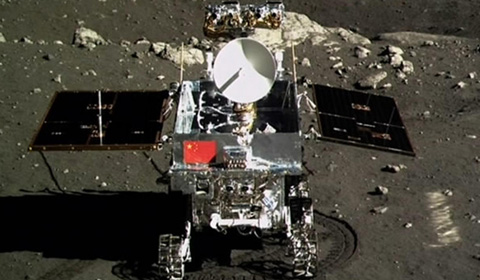China's US debt holdings pass $1.3 trillion
Updated: 2013-12-17 05:32
By MICHAEL BARRIS in New York (China Daily USA)
|
||||||||
China's holdings of US government debt in October eclipsed the $1.3 trillion mark for the first time, before a Chinese banking official signaled a cut in the accumulation of foreign-exchange reserves could be at hand – a move some saw as presaging a drop in the country's massive purchases of US Treasury securities.
China increased its Treasury holdings by $10.7 billion from September to remain the US's largest creditor, the US Department of the Treasury said. Japan remained the second-largest US creditor, even though it cut its holdings by $3.7 billion.
Overall, foreign holdings of Treasuries climbed $600 million in October to $5.65 trillion. US government securities held by overseas investors have edged up 1.4 percent this year, on track for the slowest rise since the Treasury began releasing full-year data in 2001.
Foreign demand for US assets strengthened. Net foreign purchases of long-term securities totaled $35.4 billion in October, compared to purchases of $31.3 billion in September. Analysts had expected purchases to total $31.4 billion in October.
In-mid-November, Yi Gang, a deputy governor at China's central bank, told a Tsinghua University audience that "it's no longer in China's favor to accumulate foreign-exchange reserves". The monetary authority will "basically" end normal intervention in the currency market and broaden the yuan's daily trading range, People's Bank of China governor Zhou Xiaochuan wrote in an article in a guidebook explaining reforms outlined following a Communist Party meeting. Neither Yi nor Zhou gave a timeframe for any changes.
Nicholas Borst, an economist for the Peterson Institute for International Economics, has written that a slowdown in China's foreign-reserves accumulation would precede a drop in Treasury holdings. Borst could not be reached for an interview, but Brian Reil, a Peterson Institute media relations officer, told China Daily that the economist's views have not changed since he wrote in a 2011 article posted on the think-tank's website that a "real leading indicator that Chinese purchases of US Treasuries were set to drop would be a slowdown in China's accumulation of foreign reserves."
Yi, who is also head of the State Administration of Foreign Exchange, said in the speech organized by China Economists 50 Forum that the yuan's appreciation benefits more people in China than it hurts.
Not all experts saw Yi's comments as implying China will scale back its foreign reserves gains – or cut its holdings of US government debt. Mark Williams, London-based chief Asia economist at Capital Economics Ltd., wrote in an e-mail at the time that China "has got itself into a situation where stopping intervention will be very hard to do", Bloomberg reported. Furthermore, Yi's comment will spur speculative inflows, he wrote. Scotiabank analyst Sacha Tihanyi said he expected China to keep its allocations "reasonably stable unless there's a big policy shift".
Some experts consider the monthly report on foreign holdings of US Treasury securities – known as the Treasury International Capital report – unrepresentative of any meaningful economic trends. Nicholas Lardy, another Peterson Institute economist, said "the monthly treasury figures on foreign holdings of US securities are not reliable and should not be the subject of any analysis."
China's central bank has bought massive amounts of foreign exchange over time to keep the yuan-US dollar exchange rate within its desired bounds, Borst wrote. The bank invests the foreign exchange in interest-bearing assets, "with US Treasuries attracting the bulk due to their ability to absorb large inflows, liquidity and perceived safety," the economist wrote.
China's foreign-exchange reserves jumped $166 billion in the third quarter to a record $3.66 trillion, more than tripling those of any other country and bigger than the gross domestic product of Germany, Europe's largest economy.
China increased its holdings of Treasuries in October even after it had said that month's two-week US government shutdown and the possibility of a US default could curtail its buying of US debt.
The TIC data comes ahead of a two-day meeting of Federal Reserve policy makers Tuesday on whether to start reducing bond purchases used to keep borrowing rates low and sustain the economic recovery.
The Fed will probably start curtailing its purchases this week, according to 34 percent of economists surveyed Dec. 6 by Bloomberg, an increase from 17 percent in a Nov. 8 survey.
Until last Friday's positive data on GDP growth and unemployment, many observers believed the Fed would not begin slowing their purchases of Treasuries and Mortgage-backed securities until at least March 2014.
The central bank has been buying $85 billion of bonds a month to push down borrowing costs and spur economic growth.
michaelbarris@chinadailyusa.com

 Harvard reopens all evacuated buildings after bomb scare
Harvard reopens all evacuated buildings after bomb scare
 Snow hits SW China's Yunnan province
Snow hits SW China's Yunnan province
 Moon rover, lander photograph each other
Moon rover, lander photograph each other
 With a hole in its heart, South Africa buries Mandela
With a hole in its heart, South Africa buries Mandela
 After the storm
After the storm
 Guangzhou beats Al-Ahly 2-0 at Club World Cup
Guangzhou beats Al-Ahly 2-0 at Club World Cup
 Two students wounded in US school shooting
Two students wounded in US school shooting
 21 died in Xinjiang coal mine explosion
21 died in Xinjiang coal mine explosion
Most Viewed
Editor's Picks

|

|

|

|

|

|
Today's Top News
Continuity in DPRK policies expected
Clashes with US can be avoided: FM
Kerry offers Hanoi aid in dispute
14 terrorists killed in Xinjiang
Warehouse fire extinguished
Researchers aim to better handle mental illnesses
Catering guilds object to removal of pricing rules
Eco-science centers to bind ties
US Weekly

|

|








